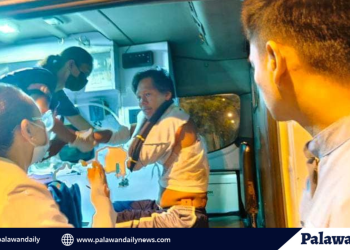The Philippine Statistics Authority (PSA) has informed senators that over 41 million Filipinos may experience additional delays of at least another year before receiving their national identification cards.
This revelation came during a hearing presided over by Senator Juan Edgardo Angara, who was himself awaiting his physical card two years after signing up for it.
Senator Angara stated during the hearing on the PSA’s budget request for 2024: “I signed up for my national ID two years ago, and I’m still waiting for my physical card. This delay in the printing process should prompt the PSA to consider using the digital version of the national IDs.”
Secretary Arsenio Balisacan of the National Economic and Development Authority, which oversees the PSA, clarified that the printing and delivery of physical IDs fell under the responsibility of the PSA.
When questioned by Senator Sherwin Gatchalian about the causes of the delay, Undersecretary Dennis Mapa of the PSA explained that it was primarily due to the private supplier of the Bangko Sentral ng Pilipinas (BSP) failing to manufacture the IDs on time because of a surge in registrants.
“The delay we’re facing is mainly because the private supplier of the Bangko Sentral ng Pilipinas (BSP), AllCard Inc., couldn’t keep up with the daily average of registrants, which reached as high as 250,000 in 2021, while their capacity was limited to producing only 80,000 cards per day,” Mapa said.
As a temporary solution, those awaiting their plastic cards were provided with copies of their national IDs printed on paper, known as e-PhilIDs (electronic Philippine Identification System).
Mapa indicated that the BSP and its service provider had presented a plan to clear the backlog and produce all 92 million targeted IDs by September 2024.
Senator Gatchalian expressed support for Senator Angara’s suggestion to promote the use of electronic copies of national IDs.
“The physical cards are prone to quality issues. With the digital cards, you can rectify it digitally,” Gatchalian said.
However, Mapa noted the challenges: “Not all Filipinos aged 15 and above possess smartphones, and there are regions with limited internet connectivity.”
Meanwhile, Secretary Balisacan revealed that the PSA had allocated P1.6 billion for the printing of national ID cards in the upcoming year.




















Discussion about this post